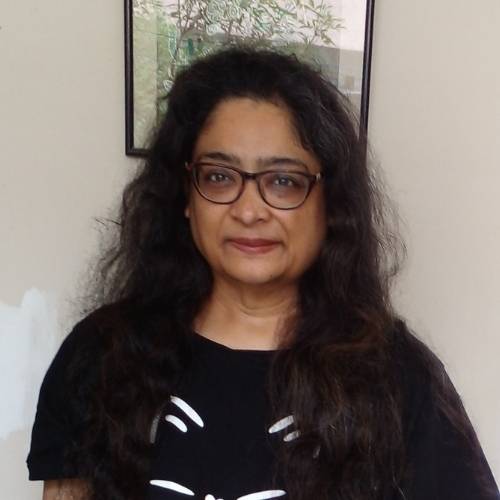‘The Courage to be Disliked’, by Ichiro Kishimi and Fumitake Koga, English edition published by Allen & Unwin, U.K. 2018.
Reviewed By K.S.Loganathan.
This is an unusual book from Japan describing the essence of the ‘individual psychology’ school of thought enunciated by the Austrian psychiatrist, Alfred Adler(1870- 1937), a one-time colleague and contemporary of Sigmund Freud and Carl Jung. Adlerian philosophy, which runs counter to Freud’s, is outlined in five sessions in a Greek-style ‘dialogue format ‘ between master and pupil in the book.
Freud’s idea is that a person’s psychic wounds (traumas) cause unhappiness. His aetiology (the study of the causation of a phenomenon) is intrapersonal and it denies our free will, treating humans as machines. Adler’s philosophy, on the other hand, is teleological (goal-directed and purpose-driven) and individual (indivisible) psychology. Individual psychology means there is no division of mind and body, reason and emotion, or the conscious and subconscious mind. Our worldview is interpersonal and subjective, according to him. Adler insists that we are not determined by our past experiences but instead, by the meaning we give them. A social connectedness rooted in caring for others, finding a sense of purpose and social concern in being useful to others, is key to happiness and improved mental health.

Adler says we choose our lifestyles at an early age but may lack the courage to change them as we go along. By focusing only on one’s shortcomings, one can dislike oneself, develop a “feeling of inferiority” become unhappy and get hurt in relationships. It is a purely subjective interpretation, which of course can be altered. The pursuit of various ideas or goals to improve oneself has its counterpart in the feeling of inferiority; there is nothing wrong with it, and it can be compensated healthily by striving and growth. Less healthily, some may try to overcome it by bragging, sporting ornate jewellery, or by dominating others. Life is not a competition, in which there are winners and losers. Life in general has no meaning.
All interpersonal relationship troubles are caused by the overlapping of one’s and other people’s tasks. The first step towards relationship building is to respect the boundary, “from here on, that is not my task”, and to discard other people’s tasks. Unless one is indifferent to other people’s judgement, or has no fear of being disliked by others and doesn’t care that one might never be recognised, one will not be free. All interpersonal relationships must be horizontal, not hierarchical. Horizontal relationships are based on the “equal, but not the same” principle. There will be no inferiority complex, or manipulation in such relationships. The most important thing is to not judge other people.
Community feeling is the barometer of interpersonal relationships. Adler’s definition of community extended to the whole universe and its inanimate objects. According to him, social concern is a matter of being useful to others. A lack of it is the very attribute of mental ill-health. By not clinging to the small community in front of you, and by listening to the “voice of the larger community”, one can connect to the deep life awareness that ‘I am of use to someone’, and achieve a feeling of happiness. Community feeling is attainable with self-acceptance, confidence in others and a contribution to others. By living earnestly in the here -and- now, neither the past nor the future, influences your life.
My views
At the beginning, the student asks the master, at a time when religion has lost its power, and there is no real belief in God, our minds are filled with anxiety and doubt. How can we be happy? ‘ and the master goes on to outline Adler’s psychology as an anodyne to anxiety. Western society brings up children and students as competing individuals but expects them to effectively contribute in teams as adults. Eastern philosophies, on the other hand, emphasize ‘familial piety’ and humane community (Confucius), ‘fasting of the mind’ or getting rid of preconceived notions (Zhuangzi) , compassion and moral conduct (Buddha), nonviolence( Jainism), and dharma in the living universe (The Bhagavad Gita). All of these deal with life tasks – work, communal life, and love- and our approach to the question of the meaning of life, as does Adler, in his time. In modern Japan, the evolution of a materialistic and atheistic society has created anxieties in their culture and worldview, and the Adlerian approach seems modern and appropriate. I think Adler’s definition of community is awesome.
However, this still leaves the social intelligence aspect of the modern hyperconnected world unexplored. What is your community in an interconnected world, and how can your interfaces with unknown parts of your community (social network) be handled in a way that is not detrimental to everyone’s interests? The book does not bring Adler up to date nor does it deal with time-honoured religious traditions that continue to be relevant.
Adler’s teleological stance means that all the arguments advanced are anecdotal and an objective measurement of the characteristics proposed is precluded. So we have a modern psychology book that has no graphs, regression coefficients, opinion surveys and references to work in allied areas on the subject. It makes it more readable, of course, especially as Adler’s concepts like inferiority complex have gone mainstream since his time. The dialogue format makes for repetitive conversations. Nevertheless, it is good to revisit Adler, even though you have to do all the heavy lifting in placing his work in today’s context.




